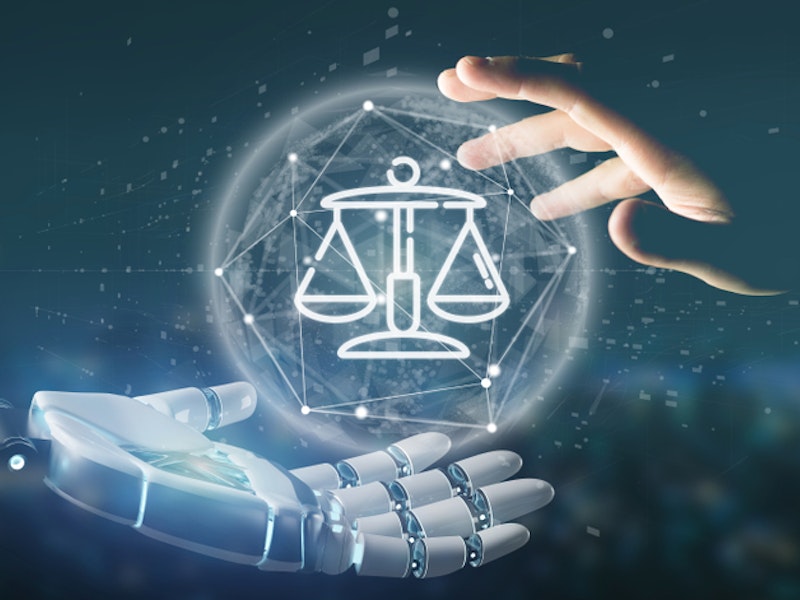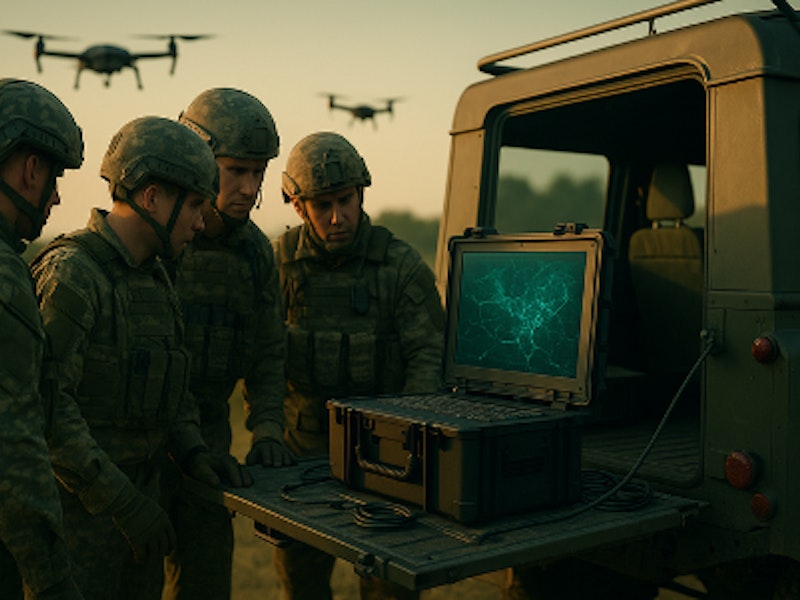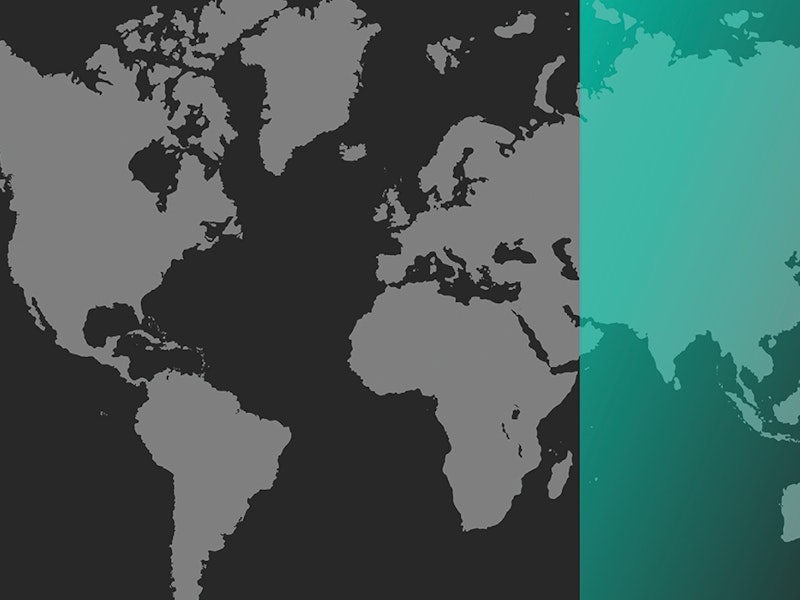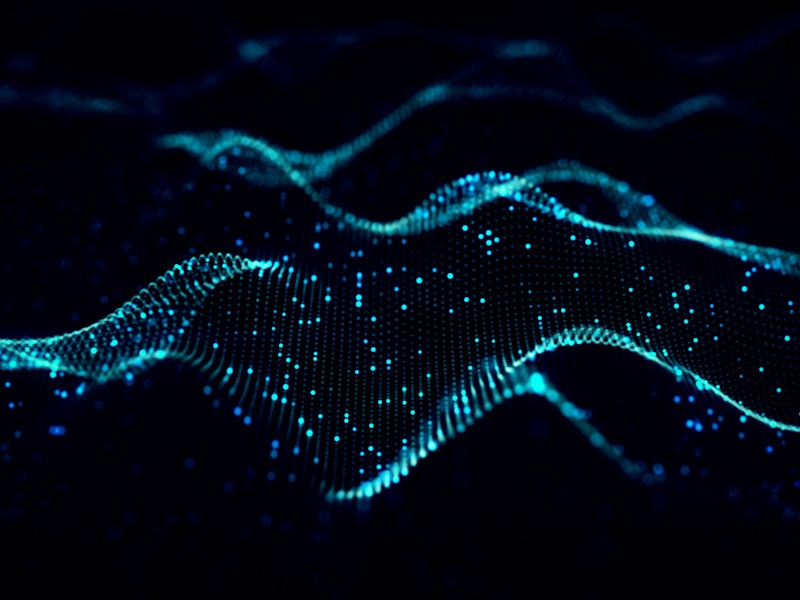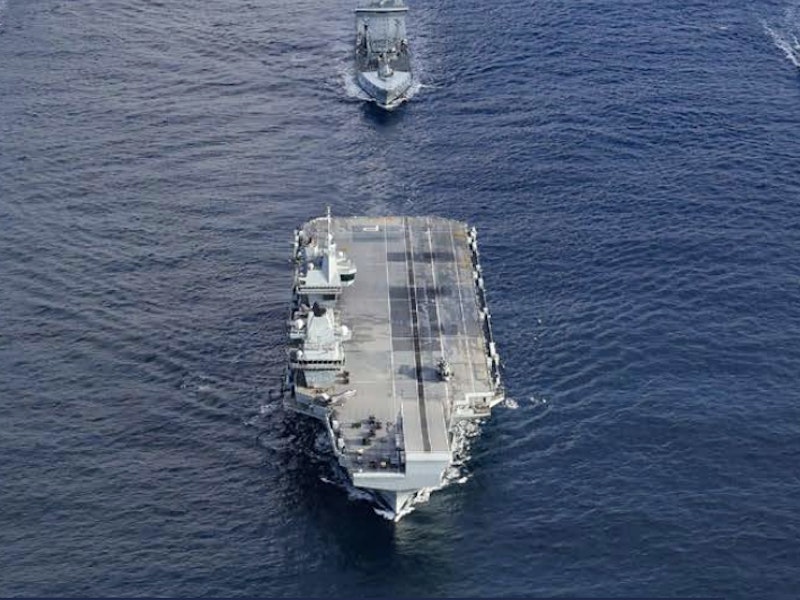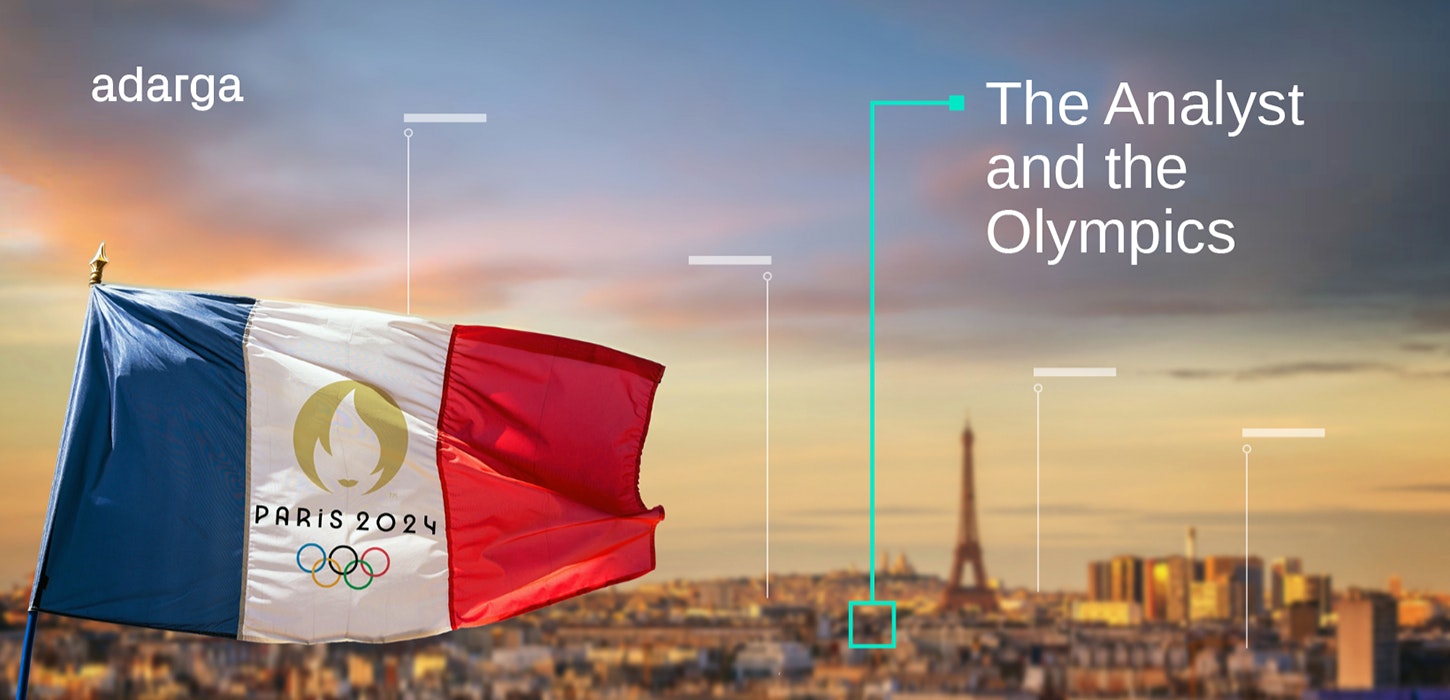
The Analyst and the Olympics – an Adarga perspective
Security was always going to be at the forefront of my mind during the Olympic Games, and the events of Friday 26th July in the lead up to the opening ceremony underlined this point.
Coordinated acts of sabotage caused severe disruption to France's national rail infrastructure. As an analyst they left me with some critical questions: (a) who did it? (b) how bad is the disruption? (c) is this part of a broader attack and are we going to see more incidents?
So where do I start on this journey? I always start in Adarga Vantage.
Vantage is our AI-driven information intelligence tool, designed to help analysts and planners gain a rich picture of information from millions of data sources in different languages and deliver dynamic insight and improved foresight to decision-makers. From my point of view probably the most important thing I get from Vantage is the human-machine teaming. I can conduct research typically 20 times faster than if I was working without Vantage. I also know that all the events, insights, news, and documents are carefully curated and can be referenced back to the source material. So, the AI is totally explainable.
The first thing I do is to create a quick project.
As you can see, when I created my project, I gave it some context in terms of the words to search for, in this instance Olympics + Security.
Now we have the project created we can see many sources of information. Initially, I would look at the events view.
What we have here is a narrow focus on the activity, each event has its precise geolocation tagged and I can see exactly where an event took place without the need to search. I can also see related events that may not be mappable.
We see one event stand out, a single claim on Twitter (X) from a member of Israel's government that Iran was behind the attack.
This is interesting, as tensions in the Middle East are high and could represent a significant security risk.
As an analyst the next step I would take would be to broaden the scope of my research and when I did this it became apparent that the tweet was misleading.
To do so, I conduct a wider search of the millions of data points available to me including insights, news articles, internal documents, think tank content, and proprietary reports. Obviously as an analyst we regularly use both closed- and open-source information and this is another key feature of Vantage, the blending of both public and private information.
I can filter through these points of interest and for this example I may be interested only in what the French media are reporting, so I can select that view.
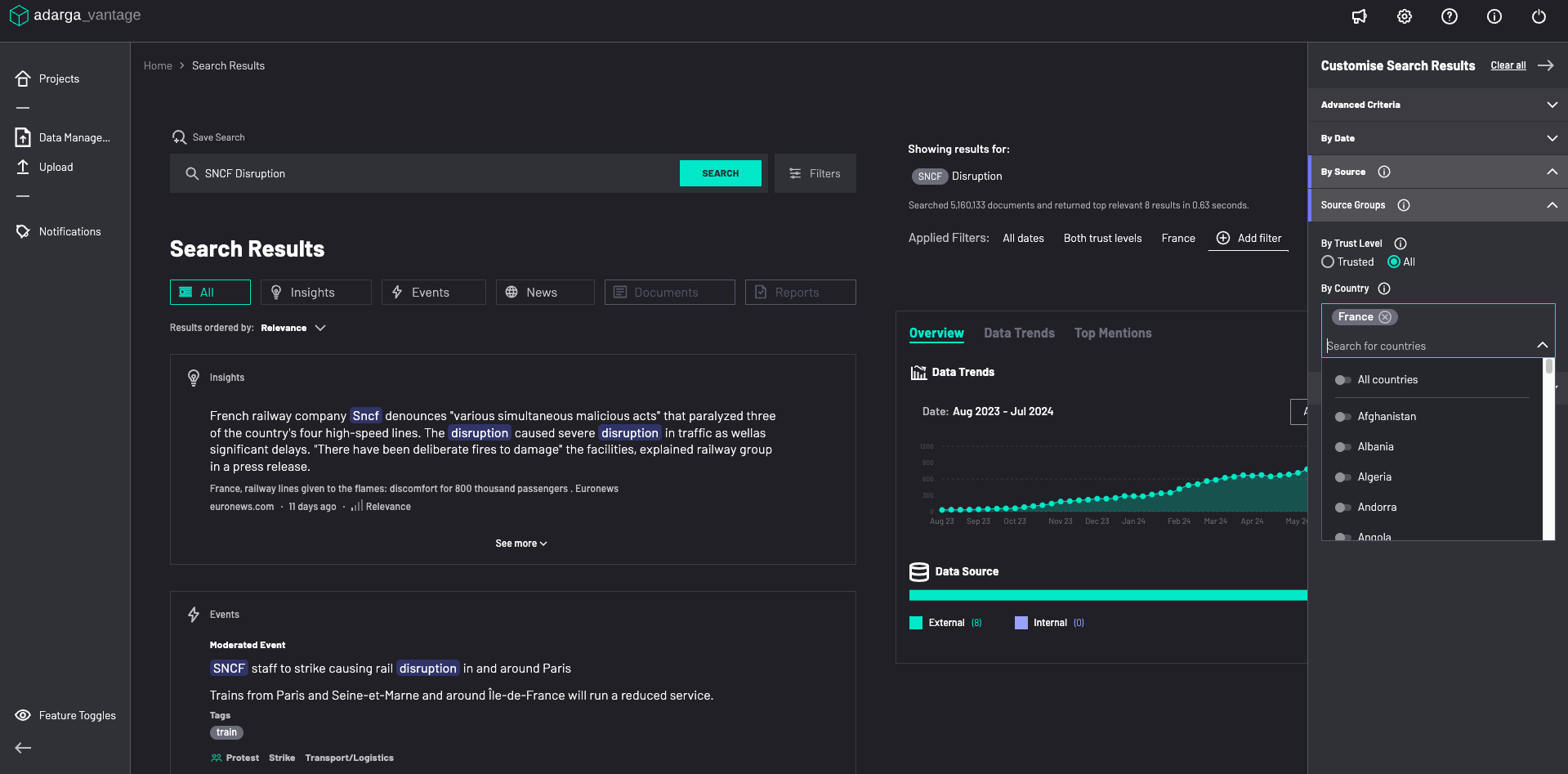
So far, I have conducted a narrow view looking at events and then broadened my horizon by looking across all data points. The next step I usually take would be to delve into Vantage's Q&A feature.
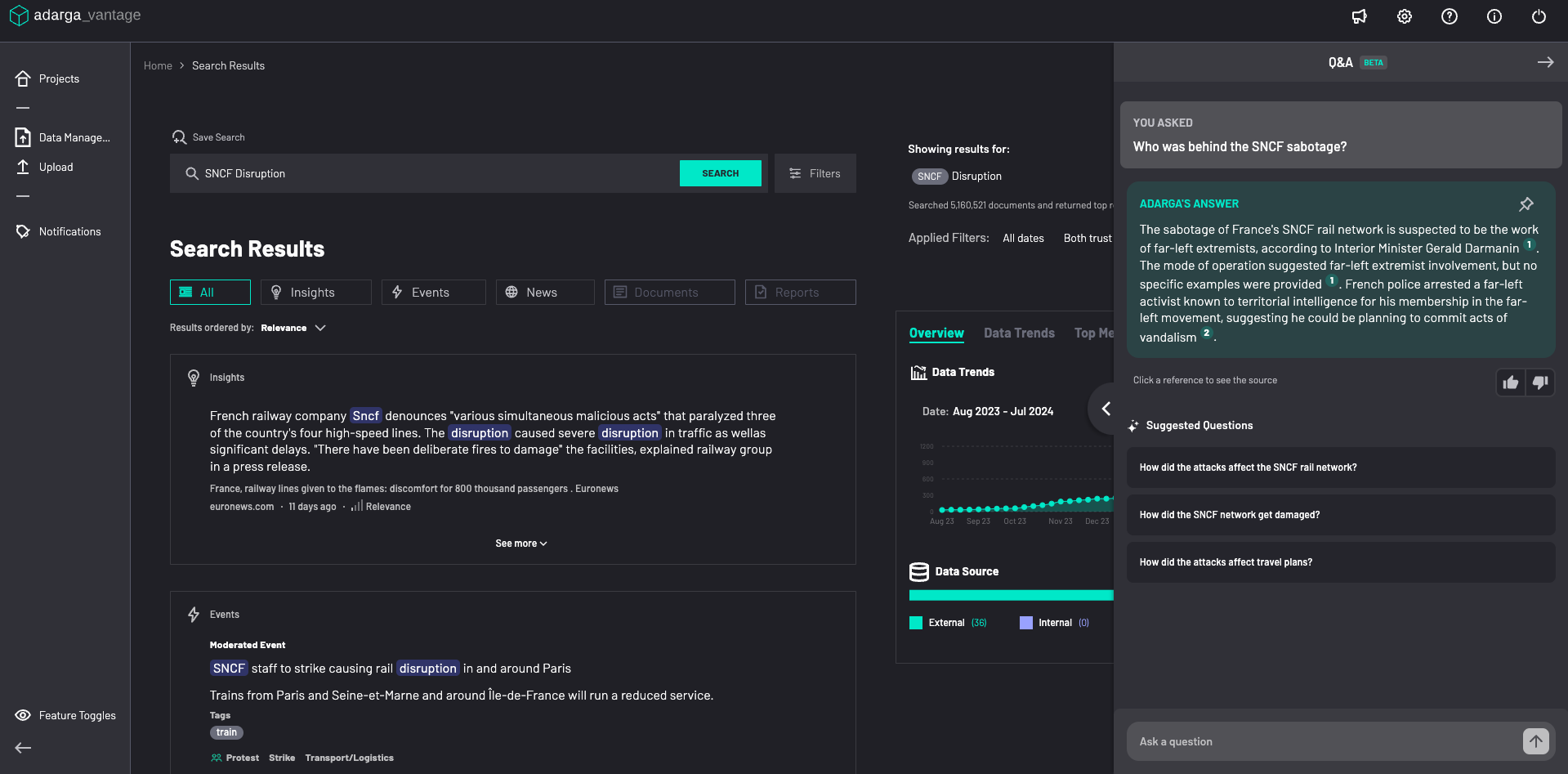
Q&A is an advanced implementation of AI and Natural Language Processing. With this feature I can ask questions as they come to mind and receive accurate, collated answers.
“Who was behind the SNCF sabotage?”
Q&A has analysed the question, understood the meaning, and then provided the “Adarga Answer”. Most importantly for me as an analyst, Q&A has provided the source references so the output is completely explainable. Q&A can also be seen as a springboard to further research, it suggests questions that are very relevant to the ones you ask and helps to surface further information. In the example above, we see Q&A suggesting that we may be interested in the related questions “Impact of SNCF attack on high-speed rail network?” or “Impact of SNCF sabotage on travel plans?”
The final step I will take is to set up a Synthesis report, which I will schedule to run daily as the Olympics is a multi-week event. In this instance I created a security threat report that not only reported on sabotage but also looked at other types of threat, such as cyber and terrorism risks. I can choose to segment synthesis reports into separate themes or collate them to look for diverse topics and issues simultaneously.
The synthesis report is a summarised thematic report, using AI to help you understand the themes and insights on a topic, either across the entirety of the data set made available or your chosen options. It enables me to get quite granular with how we configure the report, for instance we can select internal or external data or both, the countries we are interested in, or even source organisations such as media outlets or think tanks.
A synthesis report is driven by Adarga’s proprietary AI capabilities and surfaces key themes and insights on a topic, grouping together valuable insights and delivering actionable knowledge rapidly to my fingertips. Or to put it this way, now that the synthesis report is scheduled, all I do each morning is check back to review the summaries generated in the latest version of the report. One thing I particularly like about the synthesis reporting tool is the ability to download a copy of the report to Word, personally I use this to build up a picture of how an area of interest is evolving over time.
Finally, as with everything I do with Vantage, the summaries built into the report are provided with links back to the original source, so I can corroborate or verify that the information I am receiving applies to my own analytical judgement on that source.
- Written by an Adarga analyst
If you want to find out more about Adarga Vantage you can download a brochure here.


